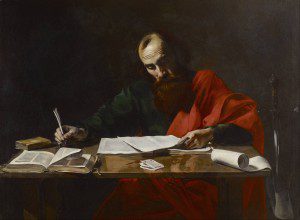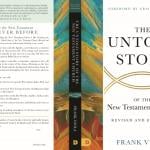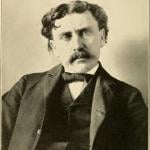
In the evening panel session, a number of the conference’s speaker held a conversation about the topics covered in the conference.
The conversation began with stories about Richard John Neuhaus. who was to have spoken at the conference and only very recently passed away. Father Neuhaus helmed the influential magazine First Things and led the ecumenical conservative movement. He was a giant, and his passing cast a shadow in our country, and even to a small extent over this conference. His presence is clearly missed.
Novak: They would get together from time to time, and Novak would bring the food, and Neuhaus the alcohol and opinions.
Elshtain: Recalls a time when she spent time with Neuhaus and she drank a bit too much and started babbling.  Neuhaus, on the other hand, “could hold his liquor.” Also had many fun conversations with Neuhaus that Elshtain thought were more profound than those she had with her faculty colleagues. Once, when Neuhaus visited Oberlin, he talked with Elshtain’s son and mentioned to him that she was one of his favorite people. He then remarked to Elshtain’s son that he hoped that the same was true for him (this remark drew laughter from the audience).
Neuhaus, on the other hand, “could hold his liquor.” Also had many fun conversations with Neuhaus that Elshtain thought were more profound than those she had with her faculty colleagues. Once, when Neuhaus visited Oberlin, he talked with Elshtain’s son and mentioned to him that she was one of his favorite people. He then remarked to Elshtain’s son that he hoped that the same was true for him (this remark drew laughter from the audience).
Poe: Once hung out with Neuhaus and his sister, Joanna. She was outgoing and dramatic and remarked that nobody knew of her because she was forever in her brother’s shadow. So Poe once went over to Neuhaus and told him that he was very excited to meet Joanna’s brother, which Joanna later said was the only time she ever saw her loquacious brother speechless.
George: Noted that Neuhas’s conversion to Catholicism from Lutheranism was a momentous event for him. The  hardest thing about it, according to Neuhaus, was to tell his Canadian mother. She was “the most self-absorbed person he knew,” according to him. He sat her down and said to her, “Mother, I’ve become a Catholic.” She responded, “No, I couldn’t marry Vince,” a boyfriend from many years past. Her main concern in hearing that her son had converted was that she had been constrained by denominational bounds and didn’t think it right that Neuhaus would now get to have his cake and eat it, too!
hardest thing about it, according to Neuhaus, was to tell his Canadian mother. She was “the most self-absorbed person he knew,” according to him. He sat her down and said to her, “Mother, I’ve become a Catholic.” She responded, “No, I couldn’t marry Vince,” a boyfriend from many years past. Her main concern in hearing that her son had converted was that she had been constrained by denominational bounds and didn’t think it right that Neuhaus would now get to have his cake and eat it, too!
George turned more serious when discussing how Roe v. Wade altered Neuhaus’s outlook on his role in life. He could no longer swim with the liberal tide. This remained true even after the literati turned their back on the unborn child, and one’s position on abortion became a litmus test. As a result, Neuhaus gave up honorary degrees to Harvard and Yale, his commentary with the New York Times, and much more. He became the leading conservative public intellectual, which garnered him few honorary degrees but allowed him to stand for life. He was the one who brought Catholics and Jews together, and evangelicals and Catholics together, reaching across lines of division. Yet, he was never satisfied with cobelligerency. He wanted the “full communion” such that he and men like Chuck Colson could truly walk arm in arm.
Elshtain: A number of her University of Chicago colleagues said that his book The Naked Public Square was a truly important book and that Neuhaus was a figure who deserved mention in the same breath with H. Reinhold Niebuhr. This was quite a commendation given those from whom it came.
Watson: On “The End of Democracy and the Judicial Usurpation of Politics,” a First Things symposium. What was it like being on the front-lines of this matter some thirteen years ago?
George: I had the privilege of contributing to this issue. Judges were acting to make laws that should have been left to legislators. Abortion and same-sex marriage fall in this category. Father Neuhaus and others raised the question, Does their come a point at which judicial usurpation creates a climate so out of line with the Constitution that the people are loosed from obligation to the state? If we are being ruled by judges, is that rule illegitimate? This issue caused no small consternation for Neuhaus, though it did also sell a ton of magazines. The editorial Neuhaus might not have been as carefully written as it could have been. But this was an important contribution nonetheless.
Novak: Sought to introduce Neuhaus to a number of younger Jewish intellectuals who wanted to be involved in important political disputes and questions of moral ecology. Wanted to be a part of raising to the fore Jewish scholars who did not think that the government was the highest power, the role reserved only for God.
Elshtain: Did not like the language of “usurpation” and “deligitimation.” This kind of language, in the political theory tradition, comes only at the end of a very long line of offenses on the part of the government. Also, in a democratic society, one wants to work to build strong majorities that cross lines. There was real debate behind the scenes about how the issue was formed.
Poe: Not a part of the First Things board, but does have a perspective on how his arguments were received in the South. They were considered “mealy-mouthed!” There is a long history in the South of rebelling against judicial usurpation. Roe v. Wade galvanized the South to more fully realize the evils of judicial activism.
Question: CS Lewis is essentially the evangelical saint. After his disastrous debate with Anscombe, he never again pursued a reason-based approach. He thought of Narnia as an apologetic that would slip past the cultural censor. What role do the arts, the imagination, and culture play in cultural renewal? How much should Christians focus on this manner of cultural engagement?
Poe: I’m not concerned with rallying the troops, but recruiting for the movement. What is most wrong with our  world cannot be solved by political means. My ultimate concerns cannot be solved with political means. One cannot win elections unless one has a majority of the vote. This is the only strategy that wins. The pulpit is where you rally the troops, but you don’t win them there. You don’t win them by attacking them, but by showing the reasonableness of your position. The arts play an important part here today. Movies don’t do well with lectures. Evangelicals haven’t figured out what to do with the arts. Mel Gibson, a Catholic, knows how to make a powerful movie. The pulpit now is the arts: literature, movies, plays. If we’re not there, we’ve retreated from the battle.
world cannot be solved by political means. My ultimate concerns cannot be solved with political means. One cannot win elections unless one has a majority of the vote. This is the only strategy that wins. The pulpit is where you rally the troops, but you don’t win them there. You don’t win them by attacking them, but by showing the reasonableness of your position. The arts play an important part here today. Movies don’t do well with lectures. Evangelicals haven’t figured out what to do with the arts. Mel Gibson, a Catholic, knows how to make a powerful movie. The pulpit now is the arts: literature, movies, plays. If we’re not there, we’ve retreated from the battle.
Elshtain: Remembers a conversation with the late historian Christopher Lasch. He remarked that they were winning the war but losing the culture. Also, remembered talking with Cardinal George of Chicago, who regularly visited the Vatican, where the Pope always asked him, “Are we winning the culture?” We are not doing a good job thinking about how to be a constitutive part of the culture, such that we produce books that are terrific, films that are terrific, and more that all testifies to true hope. Catholic students she knows don’t know Catholic doctrine. She’s not talking about increased condemnation, but about interpretation.
Novak: When at UVA, met some evangelical students who found their way to his office. They would talk about being  marginalized and ridiculed. After about half an hour, he would tell them that they sounded like Jews, and they would realize that they did. Christians in America are going through a painful process in which you are discovering that you are not the majority. You thought you were, but you were not. Now your main task is to learn to survive as the Jews have. This has altogether changed the nature of the Jewish-Christian conversation.
marginalized and ridiculed. After about half an hour, he would tell them that they sounded like Jews, and they would realize that they did. Christians in America are going through a painful process in which you are discovering that you are not the majority. You thought you were, but you were not. Now your main task is to learn to survive as the Jews have. This has altogether changed the nature of the Jewish-Christian conversation.
George: Retreating to the monastery is nothing less than a fantasy. We cannot insulate our children from the culture; it seeps in and bears on all of us. Culture shapes conduct, and law shapes conduct. We have seen Christians retreat time and again from cultural battles–“Well, we’ll just regroup after this later, and teach our people.” What happens? 1.5 million babies a year are killed. These are pre-political questions.
Now we find ourselves in a situation where we have no choice about fighting cultural battles. They will be coming with anti-discrimination laws that will force Jews, Christians, and others to fall into line. Recently on the President’s Council on Bioethics, George and others heard from a leader with a national obstetrics association that it was her group’s intention to make it a crime to fail to refer for abortions or perform abortions. People like this are not sitting back–they are seeking to drive Christians and Jews out of the medical profession! The weapons of anti-discrimination law will be used to drive us out of business. So young people in particular need to be on the offensive on matters of culture and ethics.
Question about the ethos of Evangelicals and Catholics Together. How does the two-party system mentality so prevalent today affect this conversation?
Elshtain: Not sure that there is a connection. But we make a mistake if we bifurcate the questions that Robby was talking about from social justice questions, so that we have abortion advocates on one hand and health-care advocates on the other, and never the twain shall meet. The social justice conversation immediately puts evangelicals into conversation with Catholics due to the long-standing social justice tradition in the Church. There doesn’t seem to be a lot of concrete measures behind movement like Jim Wallis’s Sojourners group. There’s a kind of groupthink out there that slams anyone who doesn’t immediately approve of a major public works program, or some such thing. Fundamental question: do we rely on a major government model to do this sort of thing, or on a civil society sort of model in which individuals and groups furnish the culture with its help and assistance.
George: Yesterday, Russ Moore warned young evangelicals about lusting for applause. A chill went up my spine when he said this. This happened because I know what happened when young people in my Catholic community had the opportunity to walk out into the larger world and go to elite schools and get elite jobs. They were offered respectability, but it came at a price–the muting of dissent. Now these young people have names like Nancy Pelosi and Ted Kennedy. Shun applause. Shun respectability. It is the devil’s bargain. When I read some scholars from the evangelical world, I can’t help but wonder if it’s approval from the secular world that they want. “Yes, we still care about abortion, but we’re focusing on global warming.” If you do what Neuhaus refused to do, you can get recognition.
On another note, there is a sure antidote for poverty, a surefire poverty-busting program. It’s called marriage. You get marriage going, you get a healthy culture. Bill Cosby is telling the truth. He’s getting flak for it, but he’s telling the truth. This is why the inner city is crumbling: there are no fathers. If you’re for social justice, then champion the marriage culture–there is no better manner.
Elshtain: One of the major emphases of the Clinton Administration in its early days was on strengthening the two-parent family. The data is overwhelming on this point.
Novak: One must leave the notion that in order to influence the culture, one must occupy the dominant cultural position. A “guerilla” mentality is necessary. This could easily happen in the United States. What if the Southern Baptists took all of their people off of the marriage registers?
George: (wryly) We are in heated agreement.
Poe: Things ebb and flow. But we must deal not simply with the rationality of the issue, but the emotionality behind it. There are major considerations here that many of us do not think about. We need to realize where the public lives now, and reach them there: popular media, Internet, etc. Remember: God has not retired.
Micah Watson (panel leader): God has not retired, but we will now.
My Take
This was an exceptional panel. Wow. Robby George is living dynamite on a panel, especially when he gets going about cultural engagement, not pandering to elites, and standing up for life. Hal Poe did not say a great deal, but his perspective on evangelical engagement with culture was solid gold. He’s dead-right on the dearth of meaningful evangelical involvement with the arts and other media that engage people at an emotional level. This is not to say that we pit head against heart–by no means. We come up with rigorous apologetics for faith, and we produce works of art that draw people’s attention to the beauty and wonder and pathos of Christian faith.
Pardon me just a second while I get both feet on this soapbox. The evangelical art scene is a swamp. We have turned out so very, very little that is truly exemplary as art. Yes, what we do often has a good heart. That’s important. But we have put out precious little that would actually engage people on its own terms, as art, as a work of beauty, as something with the whiff of the transcendent in it. What’s the last great Christian work of fiction? Narnia, right? Give me a break! That was 50 years ago! What is wrong with us? Why have we turned out so few artists, so few directors, so few playwrights? Has anyone thought about this stuff? Have Christian college presidents, and high school headmasters, and parents, and more? Or do we think that the only possible avenue of cultural influence and witness is the pulpit? If so, that’s so wrong as to almost qualify for blasphemy.
We desperately need those who work with youth to develop a vision for training Christians to engage the arts. It is as if there was a massive game scheduled, one with cosmic implications, and all the secularists and confused nonChristians showed up with all their talent and ability, and we evangelicals sent out one or two poor folks–CS Lewis, bless his heart, and perhaps a few friends–to the battle. We need legions of writers and directors and thinkers to drink from the massive wells of Christian worldview thinking and to then go to New York City, Boston, Chicago, Los Angeles and many other places to make beautiful art with a redemptive focus.
Alright, for your sake and mine, I’m going to quit here. But you cannot say that you have not heard (my) message.
The rest of the panel was engaging and enjoyable, by the by. Elshtain and Novak are both highly compelling speakers who contributed numerous insights, most preserved above.
Conclusion
And this ends day two. As I speak, Robby George, Greg Thornbury, Hal Poe, and others are (I’m not making this up, I swear) playing bluegrass for a crowd of about twenty folks. This is, to say the least, really fun. I’m hoping for the sake of cultural artifacts that somehow, in some way, by some miracle, this ends up on Youtube. It’s definitely worth it. They’re actually pretty good. They just played “I Saw the Light” and it was worthy.
And no, this is not the product of live-blogging-addled brain. This is reality. The Making Men Moral conference, ladies and gentleman–Aristotelianism, excarnation, and deep-South fiddling to your hearts’ content. On that merry note, good night!















